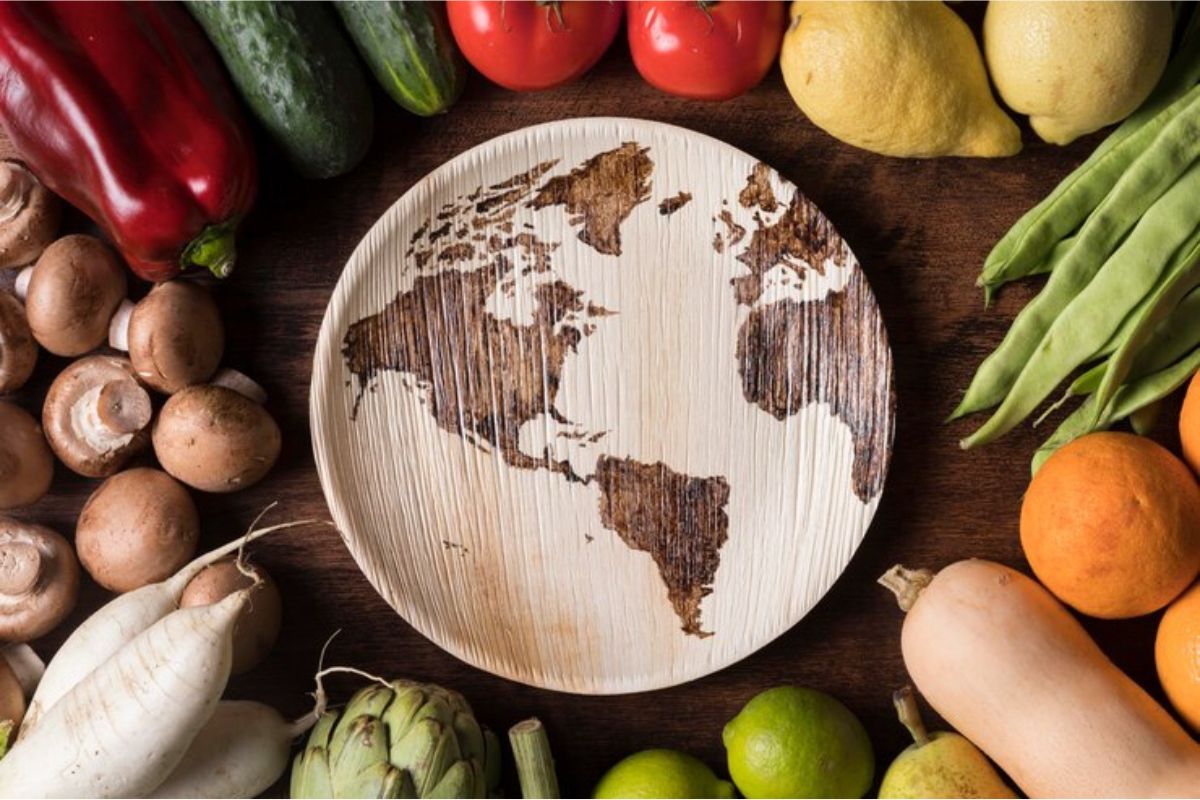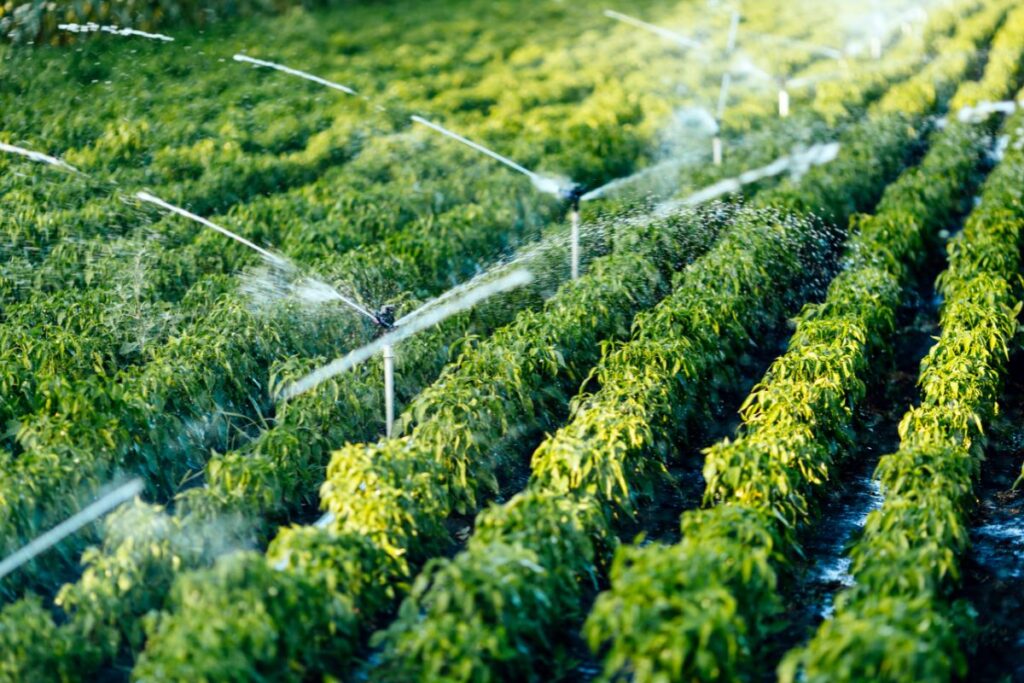
Sustainable Food Systems: From Farm to Table with Eco-Conscious Practices
Sustainable food systems are essential. Why? Well, it’s because it helps create a healthier planet and ensure the well-being of our future generations. A sustainable food system and consumption approach helps create a balance between social equity, economic profitability, and environmental health. When you support sustainable food systems, you support fair labor practices, the protection of natural resources, and the overall well-being of the community.
Eco-friendly practices in food systems cover several key components. From organic farming to locally sourced foods, this blog will explore these and other eco-conscious farm-to-table practices.
Sustainable Agricultural Practices

Organic farming is one of the most effective sustainable agricultural practices. It offers numerous benefits to soil health. These include minimizing the dependence on chemical inputs. Organic farming promotes a natural ecosystem within the soil. But, how does it do so? It’s made possible because it avoids the use of synthetic fertilizers and pesticides. Natural processes like composting and green manures help enhance the fertility of the soil.
So, what are the results of organic farming? It increases water retention, improves soil structure, and even reduces the risk of erosions. And the best part about organic farming is that the lack of harmful chemicals keeps beneficial microorganisms safe. Eventually, it leads to more balanced and resilient agricultural practices.
Crop rotation and diversity is another important sustainable agricultural practice. It reduces the build of pests and diseases, preventing soil depletion. So, how does crop rotation help? Well, different crops have different soil requirements and resistance to pests. Crop rotation promotes biodiversity and enhances the nutrient profile of the soil. Eventually, it leads to better soil health and fertility. Diversifying crops also attract beneficial insects and microorganisms, essential for a thriving ecosystem.
The Role of Sustainable Livestock Management
Let’s look at the important role of sustainable livestock management practices.
The first is a pasture-based livestock system. This practice involves allowing animals to graze on pastures. But, why is it done? It’s because it is beneficial to provide them with a humane and natural environment. Since animal manure is a natural fertilizer, this practice also benefits soil fertility and health in many ways. It enriches the soil with several important nutrients. This sustainable livestock management practice is also essential for carbon sequestration, promoting biodiversity, controlling erosions, and maintaining healthy grasslands.
Other important sustainable livestock management practices include managed or rotational grazing and reducing the use of antibiotics in livestock farming. The former involves limiting the movement of livestock between pastures. This is done to prevent overgrazing. On the other hand, the excessive use of antibiotics can result in bacteria resistance and even contamination of the environment. In the latter case, the solution is to look for alternatives. These can include herbal remedies, probiotics, etc. Improving practices related to animal husbandry can also improve animal health without relying on antibiotics.
Managed or rotational grazing will allow grasses to grow back and recover quickly, preserving land and soil health.
Enhancing the Farm-to-Table Supply Chain
Now, let’s look at some ways to enhance the supply chain from farm to table.
You must have heard the term local food sourcing. So, what is it and how does it enable food systems to be more sustainable? Let’s find out.
The definition of local food sourcing can vary greatly. However, the most agreeable definition of local food sourcing is that it is the food produced within 50 to 100 meters of where it is served. It reduces transportation, contributing less to carbon footprints. It also supports local farmers and food producers. One of the biggest advantages of local food sourcing is that it creates job opportunities in local communities.
Another more effective way is to build a direct relationship between consumers and farmers. When there is a direct relationship between farmers and consumers, it helps you gain better insights into how it’s produced. This direct relationship will also support fair pricing policies for farmers.
Lastly, reducing food waste practices can go a long way in creating sustainable food systems. Some effective practices to reduce food waste include composting, imperfect produce, etc. You can also reduce food waste by donating surplus food.
Challenges and Solutions in Sustainable Food Systems
Each great initiative comes with major challenges, and so does creating sustainable food systems. Let’s look at some common challenges and their solutions.
Trade policies and economic pressures are the biggest challenges to sustainable food systems. Why, you ask? It’s because they favor agricultural practices on a large scale. It prioritizes quantity over quality. So, what happens when there’s a strong emphasis on mass production? It often leads to water pollution, soil erosion, and biodiversity loss.
Economic pressures, on the other hand, force farmers to adopt unsustainable and unethical agricultural practices. The goal is to compete in the global market without giving much thought to the environment. Farmers end up overusing chemical fertilizers, and pesticides. These practices compromise soil health in the long term.
Subsidies and incentives for farmers who adopt sustainable agricultural practices by the governments seem like a probable solution to this problem.
Consumer Role and Restaurant Contributions
Choosing organic, locally sourced, and seasonal foods supports sustainable farming practices. Reducing food waste by planning meals and using leftovers wisely can also make a big difference. When you prioritize sustainable choices, you message producers and retailers about the importance of eco-friendly practices.
Educating yourself and others about the impact of food choices by participating in community-supported agriculture (CSA) programs is essential to support farmers’ markets. It not only promotes sustainability but also strengthens local economies.
Many restaurants are adopting water conservation measures, such as installing low-flow faucets and using water-efficient appliances. Sustainable packaging is another critical area where restaurants are making strides. Biodegradable and compostable packaging options help reduce plastic waste.
Local sourcing is becoming a popular practice among eco-conscious restaurants. By sourcing ingredients locally, restaurants reduce transportation emissions and support local farmers. Look for restaurants that highlight their sustainable practices and try to support them.
The Future of Sustainable Food Systems
Precision agriculture uses data and technology to optimize farming practices. It can significantly reduce resource use and increase crop yields. Vertical farming and hydroponics offer solutions for growing food in urban areas, reducing the need for extensive land and water resources.
Blockchain technology can enhance transparency in the food supply chain, ensuring sustainable practices are maintained from farm to table. Supporting and investing in these technologies can help drive their adoption and effectiveness.
Community gardens, urban farming initiatives, and local food cooperatives are excellent examples of how communities can promote sustainable practices. These initiatives provide fresh produce and educate and engage community members in sustainable agriculture.
Conclusion
Transitioning to sustainable food systems from farm to table is vital for a thriving future. Integrating eco-conscious practices into your food choices contributes to environmental health, supports ethical food production, and strengthens community resilience. Every small action you take, from choosing local produce to reducing food waste, significantly impacts you. It drives the shift towards a greener and more just food system.

Prachi, an accomplished Chief-Editor at The Sustainable Brands Journal, has 15+ years of experience in Europe, the Middle East, and India, managing 90+ global sustainable brands. She’s a prolific writer in sustainability, contributing to various publications. Prachi’s unwavering passion and expertise make her a recognized authority, driving positive change and inspiring a sustainable future.





